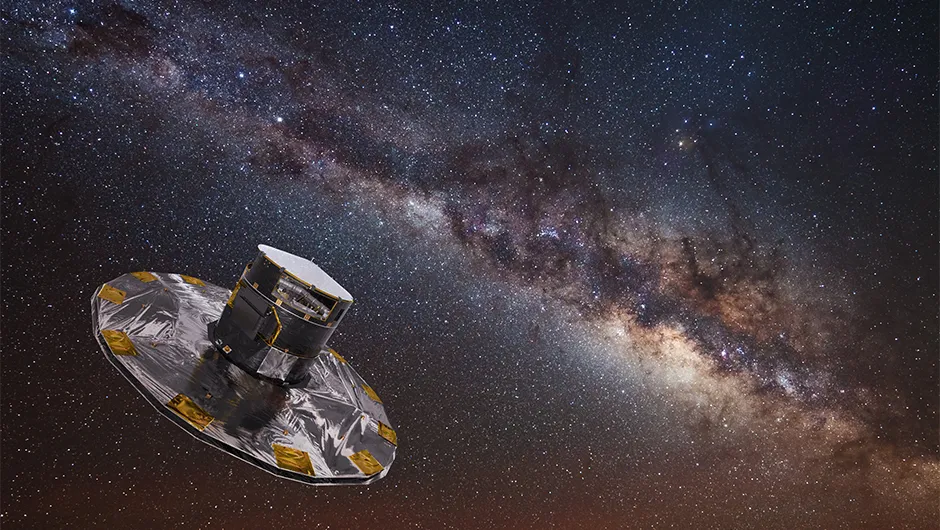The closest black hole to Earth is a stellar mass black hole just 1,600 lightyears away called Gaia BH1.
Gaia BH1's discovery was announced in 2022 and was made using a fleet of telescopes including the Gaia spacecraft, the 6.5m Magellan Baade telescope at Las Campanas Observatory in Chile and the Gemini Multi-Object Spectrograph instrument on Gemini North.
The black hole set a new record for the closest known black hole to Earth.
Its presence was revealed after ESA’s Gaia space telescope observed the unusual motion of its stellar companion, a Sun-like star.
Closer inspection of the star’s motion revealed it was orbiting around an unseen black hole with a mass 10 times that of our Sun.

"This is the first unambiguous detection of a Sun-like star in a wide orbit around a stellar-mass black hole in our Galaxy," says Kareen El-Badry from the Center for Astrophysics, Harvard and Smithsonian, who led the study.
Stellar pair Gaia BH1 are about as far apart as Earth and the Sun, leaving astronomers struggling to explain how the star managed to survive the hypergiant phase its companion must have gone through before collapsing into a black hole.
"It is interesting that this system is not easily accommodated by standard binary evolution models," says El-Badry.
"It poses many questions about how this binary system was formed."
The largest known black hole is in galaxy Abell 1201 and is 33 billion times the mass of our Sun.

